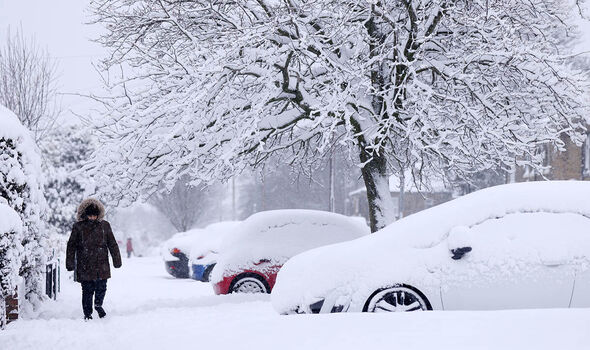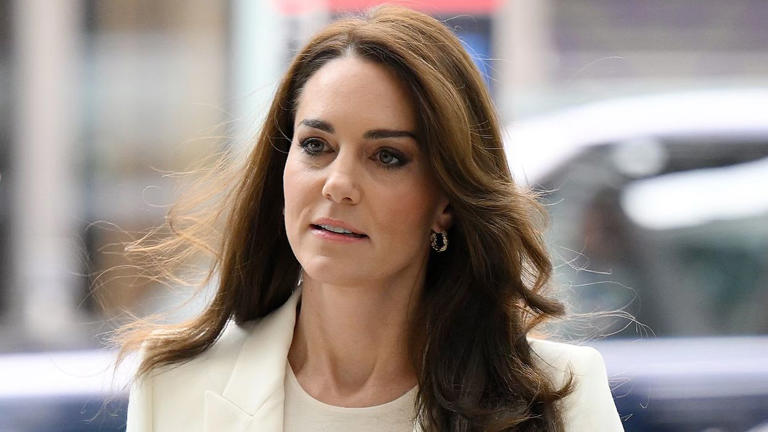Image Credit: Daily Express
As Christmas approaches, the excitement surrounding the holiday season intensifies. People are busy planning their celebrations, shopping for gifts, and decorating their homes. For many, one of the highlights of Christmas is the possibility of a white Christmas, with snowflakes gently falling to create a festive winter wonderland. This year, the question on everyone’s mind is: Will Snow Is Forecast To Hit The UK On Christmas Week? Let’s explore the forecast, historical patterns, and what you can expect this holiday season.
Read Also: Shocking Coronation Street Spoilers Lauren Secret Exposed!
Table of Contents
ToggleThe UK Weather Forecast: Will Snow Fall This Christmas?
Meteorologists have been keeping a close eye on weather patterns as Christmas week approaches. According to the UK Met Office, the forecast is often subject to change, and predicting snow accurately months in advance is not always possible. However, by monitoring long-range forecasts and seasonal trends, experts can offer an educated prediction about the likelihood of snow during the festive period.
For this year, snow is indeed forecast to fall in some areas of the UK during Christmas week, although it’s expected to be more concentrated in higher altitudes and northern regions. The most likely places to experience snow include parts of Scotland, the northern Pennines, and the higher ground of northern England and Wales. It’s worth noting that southern England and much of the midlands will likely experience colder temperatures, but snow may be less widespread and intense in those areas.
The weather models currently indicate that a cold front will move in from the north, bringing cold air and possibly snow to parts of the country. This could lead to snow showers, particularly on higher ground, but it is unlikely that much of the UK will experience a blanket of snow across the entire country. As we approach Christmas, these forecasts will become clearer, and exact predictions of snow will be refined as meteorologists monitor real-time data.
What Affects Snowfall in the UK?
Several factors contribute to snowfall in the UK, and not all regions are equally likely to experience snow. Key factors include:
- Temperature: Snow requires temperatures to be at or below freezing (0°C or 32°F). Areas with temperatures below freezing are more likely to see snow, especially when combined with moisture in the air.
- Elevation: Higher elevations, such as mountains and hills, are much more likely to see snow. This is why places like the Scottish Highlands, the Pennines, and parts of the Lake District are prime spots for snow during winter.
- Moisture: Snow can only occur if there is sufficient moisture in the atmosphere. Cold weather fronts can bring moisture-laden air, which, when cooled, results in snow.
- Wind Patterns: Winds from certain directions, especially from the north or east, bring colder air and can increase the likelihood of snow. When these winds collide with moist air, snow showers are more likely to form.
Historical Snowfall on Christmas in the UK
The dream of a white Christmas has been part of British culture for generations. However, the likelihood of having snow on Christmas Day itself is actually quite low. According to the UK Met Office, only around 1 in 10 Christmas Days (roughly 10%) result in snow falling at a weather station in the UK. Snow on Christmas Day is much rarer in southern and central parts of the country, but it is more common in Scotland and the north.
Some notable instances of white Christmases in the UK include:
- 2010: The UK experienced one of the coldest winters in recent history, with widespread snow across the country. Many areas saw snow on Christmas Day.
- 2017: A snowy Christmas was recorded in many parts of the UK, with heavy snowfalls in Scotland and parts of northern England.
- 2020: Christmas was colder than usual, with snow in many regions, including the north and midlands, despite the ongoing challenges of the pandemic.
While it is impossible to guarantee snow every year, the possibility of a white Christmas adds a layer of magic to the season, especially for children and those dreaming of a classic holiday scene.
What to Expect This Christmas Week
As we look at this year’s Christmas forecast, expect a mixed bag of weather. Some areas will experience snow, especially in the higher regions of the north, while others may see sleet or just cold, crisp air. For those hoping for a full-blown winter wonderland, there will likely be pockets of snow but not a nationwide snowstorm. Here’s a quick breakdown of what to expect in various regions:
- Scotland: Higher altitudes are likely to see heavy snowfall, making it a prime destination for those looking to enjoy a white Christmas. The southern parts of Scotland may also experience some snow showers, though they are expected to be light.
- Northern England: Areas like the Pennines and parts of the Lake District will likely see snow, particularly on higher ground. Other regions may see a mixture of snow and rain.
- Southern England: While snow is possible, it will be more sporadic. Many areas are expected to see cold temperatures but little to no snow. Coastal areas may experience milder temperatures due to the influence of the sea.
- Wales: Like northern England, higher areas of Wales are likely to see snow, while the lower lying areas will likely experience cold rain.
How to Prepare for Snowy Weather
If you’re planning to travel during Christmas week or are simply preparing for the potential snow, here are some tips to ensure you’re ready:
- Check the weather regularly: Keep an eye on local weather reports to stay informed about snow forecasts in your area. The Met Office offers up-to-date weather warnings and predictions.
- Prepare your vehicle: If you’re driving, make sure your car is equipped for winter conditions. This includes having proper tires, de-icing equipment, and emergency supplies in case of delays or road closures.
- Dress warmly: Layer up with insulated clothing, especially if you plan to be outside for extended periods. A good winter coat, gloves, and hat are essential for staying warm.
- Keep your home cozy: Ensure your heating system is working well and that your home is properly insulated to handle the cold temperatures. You might also want to stock up on essentials like food and water in case of travel disruptions.
- Enjoy winter activities: If snow does hit your area, it’s a great opportunity to enjoy winter activities like building snowmen, ice skating, or taking scenic walks in the snow.
Conclusion:
FAQs About Snow is forecast to hit the UK on Christmas Week
1. Will it snow on Christmas Day in the UK?
Snow on Christmas Day is not guaranteed, but there is a small chance it could happen. Historically, snow is more likely in northern regions and at higher altitudes.
2. Which parts of the UK are most likely to see snow this Christmas?
Scotland, northern England, and higher ground areas are the most likely to see snow during Christmas week. Southern England will experience less snow.
3. How cold will it be in the UK this Christmas?
Expect cold temperatures across the country, especially in the north. While snow is more likely in the north and at higher elevations, southern regions will experience cold, rainy weather instead.
4. How do I prepare for snow in the UK?
Stay updated on weather forecasts, prepare your vehicle with winter tires, and dress warmly. If snow falls, enjoy the festive spirit by engaging in winter activities like sledding or building snowmen.




